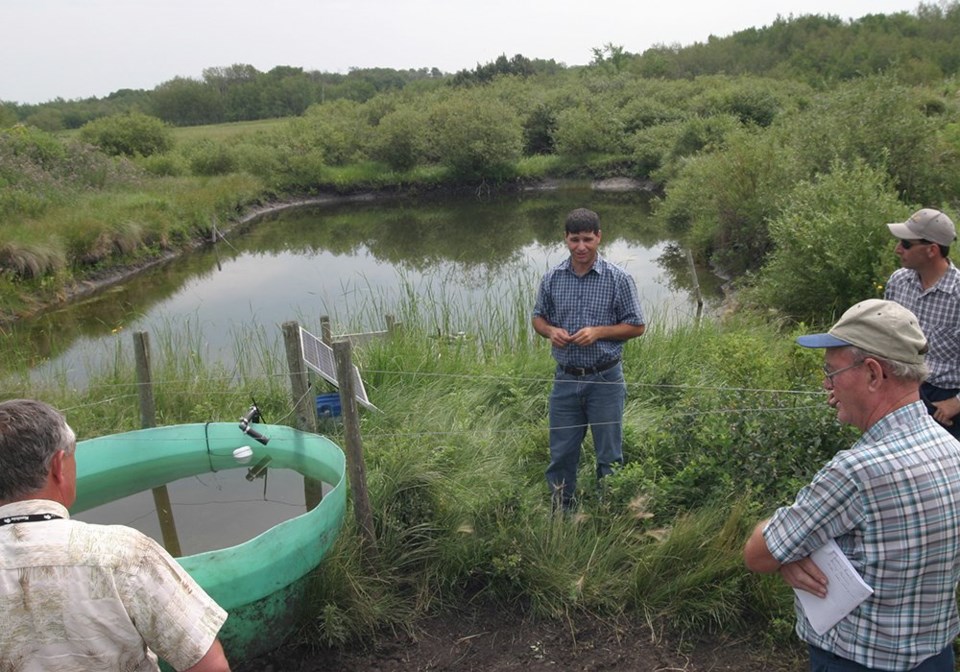WESTERN PRODUCER — The federal government plans to spend $182 million to help farmers reduce greenhouse gas emissions, including $40 million for a 26-month project in Manitoba and Saskatchewan.
The Manitoba Association of Watersheds (MAW) will lead the group overseeing the project, which will encourage and financially support producers who adopt rotational grazing, improve nutrient management and use cover crops on their farms.
MAW will head the steering committee, which includes representatives from the Saskatchewan Association of Watersheds, the Manitoba Forage and Grassland Association, the Saskatchewan Forage Council, the Manitoba Habitat Heritage Corp. and Manitoba Beef Producers.
"This is a project for producers and has been since our very first steps together as a group," said Lynda Nicol, MAW executive director.
"We are intent on producers seeing the great impacts they can make on their farmlands via this project and are confident in the strength of our delivery partners to move this project forward to communicate, mentor and engage producers efficiently."
The federal support comes from the On-Farm Climate Action Fund, part of the government's broader goal of cutting greenhouse gas emissions 40 to 45 percent below 2005 levels by 2030.
An Agriculture Canada news release, issued this morning, explained that 12 groups across Canada will deliver the On-Farm Climate Action Fund.
Ag Canada says the $182 million will provide "direct support to farmers" for the following practices:
- Cover cropping, which includes direct payments per acre or payments for seed and equipment cost.
- Nitrogen management, such as agronomic services for on-farm nutrient management plans, equipment modifications and soil sampling and analysis.
- Rotational grazing, such as agronomic services for grazing management plans, interior cross fencing, water system infrastructure and the cost of legume and forage seeds.
These farm practices, supported by the $182 million, are expected to reduce greenhouse gas emissions by up to two million tonnes by 2024, Agriculture Canada says.
"We are taking a grassroots, regional approach to addressing issues related to climate change in agriculture," said Garry Wasylowski, MAW board chair.
"Supporting farmers to implement BMPs (best management practices) related to nitrogen management, rotational grazing, and cover cropping will have a positive impact on Canadian agriculture. We are proud to have the opportunity to deliver this programming in Manitoba and Saskatchewan, thanks to AAFC."
The Manitoba Association of Watersheds expects more details on the program in early March.




